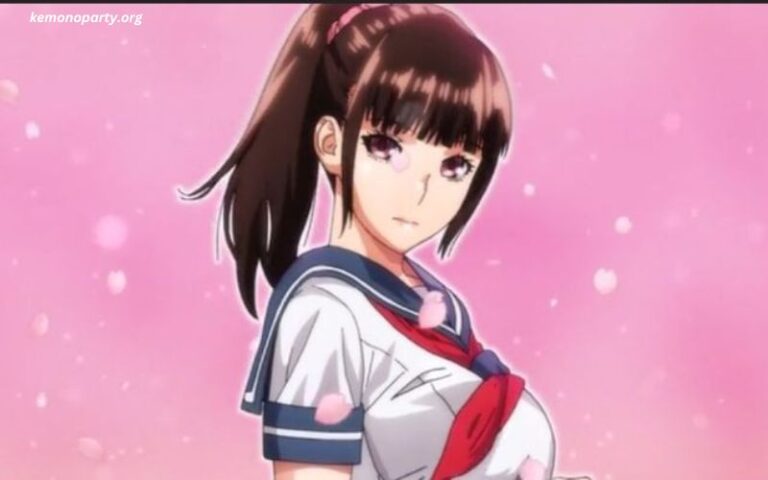“Iinchou wa Saimin Appli wo Shinjiteru” (The Class Representative Believes in the Hypnosis App) is a manga series that has garnered significant attention since its release. Known for its provocative themes and intricate storytelling, the series has sparked debates and discussions among manga enthusiasts and critics alike. This article delves into the manga’s storyline, characters, themes, and the controversy surrounding it, providing a comprehensive overview of its impact on the manga world.
Storyline Overview
The manga revolves around the life of a high school class representative, often referred to as “Iinchou” (a Japanese term for class president), who becomes entangled with a mysterious hypnosis app. The protagonist, known for her strict and disciplined nature, discovers an app that claims to have the power to hypnotize people. Skeptical yet curious, she decides to test the app’s capabilities, leading to a series of unexpected and often morally ambiguous events.
As the story progresses, the class representative’s initial skepticism gives way to belief as she witnesses the app’s effects firsthand. The narrative explores her internal conflict, as she grapples with the ethical implications of using such a powerful tool. The manga delves into themes of power, control, and the moral dilemmas that arise from the ability to manipulate others.
Character Analysis
-
The Class Representative (Iinchou)
The protagonist of the story, Iinchou, is portrayed as a model student—diligent, responsible, and respected by her peers. Her discovery of the hypnosis app marks a turning point in her life, challenging her beliefs and values. Throughout the series, readers witness her transformation from a rule-abiding student to someone who struggles with the temptation of misusing the app’s power. Her character serves as a vessel to explore the complexities of human nature and the consequences of absolute power.
-
Supporting Characters
The manga features a diverse cast of supporting characters, each with their unique personalities and roles in the storyline. These characters range from fellow students to teachers, all of whom become unwitting subjects of the hypnosis app. The interactions between Iinchou and these characters add depth to the narrative, highlighting the various ways in which power dynamics can shift in different relationships.
Themes and Motifs
“Iinchou wa Saimin Appli wo Shinjiteru” tackles several thought-provoking themes that resonate with readers:
-
Power and Control
The central theme of the manga is the exploration of power and control. The hypnosis app symbolizes absolute power, giving Iinchou the ability to bend others to her will. This theme raises questions about the ethical use of power and the potential for corruption when one possesses the means to control others.
-
Moral Dilemmas
The manga delves into the moral dilemmas faced by the protagonist as she navigates the complexities of using the hypnosis app. Iinchou’s internal struggle reflects broader ethical questions about free will, consent, and the responsibility that comes with power.
-
Psychological Exploration
The psychological aspect of the story is another significant theme. The manga delves into the minds of its characters, exploring their motivations, fears, and desires. This psychological depth adds layers to the narrative, making it more than just a tale of hypnosis and control.
-
Social Commentary
Through its characters and plot, the manga offers social commentary on the pressures faced by high school students in Japan. It touches upon issues such as academic stress, peer pressure, and the desire for acceptance, all of which contribute to the protagonist’s fascination with the hypnosis app.
Controversy and Criticism
“Iinchou wa Saimin Appli wo Shinjiteru” has not been without its share of controversy. The manga’s depiction of hypnosis and manipulation has raised concerns about the potential for misinterpretation and the ethical implications of its content.
-
Ethical Concerns
Critics argue that the manga’s portrayal of hypnosis and the ease with which the protagonist wields power can be problematic. The depiction of non-consensual actions, even within a fictional context, has sparked debates about the responsibility of creators in representing sensitive topics.
-
Impact on Readers
The manga’s mature themes and provocative content have led to discussions about its impact on readers, particularly younger audiences. Some argue that the story could influence impressionable minds, while others believe it serves as a cautionary tale about the dangers of unchecked power.
-
Narrative Choices
The narrative choices made by the author have also been a point of contention. While some appreciate the complex and morally ambiguous storyline, others feel that certain plot points and character developments are gratuitous or sensationalized.
Reception and Popularity
Despite the controversy, “Iinchou wa Saimin Appli wo Shinjiteru” has achieved significant popularity. Its unique premise and bold storytelling have attracted a dedicated fanbase. The manga’s ability to provoke thought and discussion is a testament to its impact on readers.
-
Fanbase and Community
The manga has cultivated a passionate fanbase, with readers engaging in discussions, fan theories, and fan art. Online forums and social media platforms serve as hubs for fans to share their interpretations and reactions to the story.
-
Critical Acclaim
While the manga has faced criticism, it has also received praise for its storytelling and character development. Critics who appreciate the series highlight its ability to challenge conventional narratives and explore complex themes.
-
Cultural Impact
“Iinchou wa Saimin Appli wo Shinjiteru” has made a mark on the broader manga landscape, influencing other works that explore similar themes of power and control. Its success underscores the demand for stories that push boundaries and provoke thought.
Conclusion
“Iinchou wa Saimin Appli wo Shinjiteru” is a manga that defies easy categorization. Its exploration of power, control, and moral dilemmas has captivated readers and sparked important conversations. While controversial, the series’ impact on the manga community is undeniable. It serves as a reminder of the power of storytelling to challenge perceptions, provoke thought, and explore the complexities of human nature. Whether viewed as a cautionary tale or a provocative narrative, the manga leaves a lasting impression, encouraging readers to reflect on the ethical implications of power and control in their own lives.


